UNICEF and Tanoto Foundation Discuss Supporting Vulnerable Children and Adolescents During a Global Pandemic
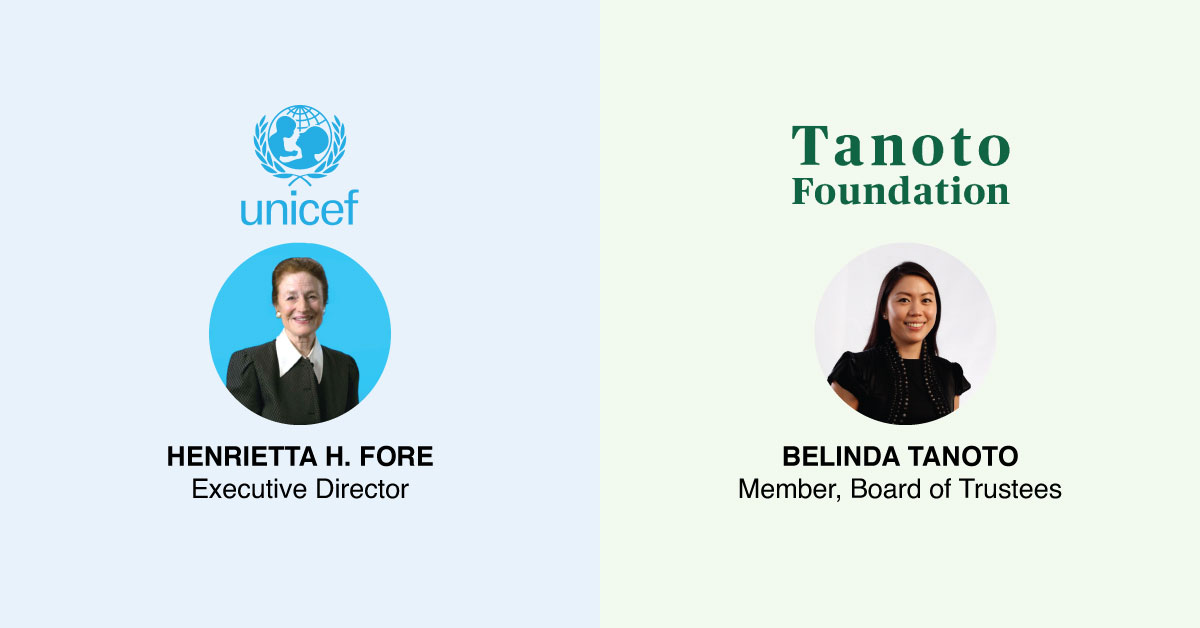
As the devastating impacts of COVID-19 unfold across the world, existing inequalities have been exacerbated. Children and adolescents are particularly vulnerable to these impacts, creating an urgent need for collaboration and innovation to ensure the most disadvantaged are not left behind.
Belinda Tanoto, a Member of the Board of Trustees at the Tanoto Foundation, an independent family philanthropy organisation founded by Sukanto Tanoto and Tinah Bingei Tanoto in 1981 also a UNICEF partner organisation in Indonesia, joined Henrietta Fore, Executive Director at UNICEF, the United Nations agency responsible for supporting children’s rights across the world, in a recent webcast titled “New Virus, Old Inequalities” to discuss the risks the global pandemic poses to young children. Moderated by J.P. Morgan Private Bank’s Head of The Philanthropy Centre for Asia Jean Sung, the two respected leaders addressed the key challenges facing children and adolescents in the wake of the global pandemic, namely healthcare and education, and the need for nation-wide collaborations to overcome these challenges.
COVID-19 Pandemic Disruptions Impact Access To Healthcare
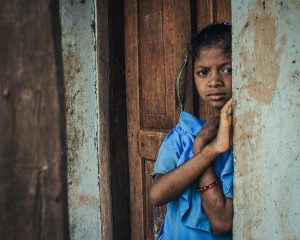 Ms Henrietta Fore said the COVID-19 pandemic has caused further delays in the immunisation of children, and impaired access to clean water and health services. These are not helped by the lack of awareness in parents and the community on the importance of these health and medical care essentials.
Ms Henrietta Fore said the COVID-19 pandemic has caused further delays in the immunisation of children, and impaired access to clean water and health services. These are not helped by the lack of awareness in parents and the community on the importance of these health and medical care essentials.
The pandemic also poses many worrying challenges to Indonesia’s efforts in stunting mitigation and basic education. Ms Belinda Tanoto shared in the panel discussion that the pandemic has affected poverty alleviation efforts, supply chains, as well as access to essential services to help children thrive. She said, “Community clinics are suspended and frontline workers are interrupted… It’s more important than ever that philanthropists and non-profits step up their activity.”
Sharing from the Tanoto Foundation’s perspective, Ms Tanoto said that while the COVID-19 pandemic has forced the Foundation to deviate from the “normal” way of doing things, it has also allowed the Foundation to think out of the box and “build back better”. This includes supporting the ramped up use of technologies across schools and communities.
Ms Tanoto cautioned that while many are now dealing with the shorter-term implications of the pandemic, we should not lose sight on the longer-term issues. This applies to increasing the vaccination rate and safeguarding the supply chain.
Social Distancing Heightens Need for Technology Adoption For Blended Learning
The panel agreed that the use of technology has been intensified to help the next generation thrive in the fourth industrial revolution. Ms Fore added that while many education systems around the world have not changed in the last 40 to 50 years, the pandemic has undoubtedly accelerated the adoption of new technologies.
Ms Tanoto said that while the Tanoto Foundation believes in technology as an enabler of learning, there still exist challenges on the ground in transforming current pedagogies to fully embrace and consistently implement blended learning. Blended learning is a form of education that involves the use of electronic and online media to accompany traditional face-to-face learning. The pandemic-influenced circumstances have allowed the Tanoto Foundation to accelerate the move towards blended learning, thereby extending learning time and opportunities for children.
Sharing insights into the Tanoto Foundation’s engagement with teachers, Ms Tanoto shared that many of them merely used social media and instant messaging to disseminate homework – an indication students were still learning passively. However, with appropriate training through programmes such as Ruang Guru and the Tanoto Foundation’s flagship PINTAR program, school administrators and educators will be better placed to nurture the various literacies in students so they may meet the demands of the fourth industrial revolution.
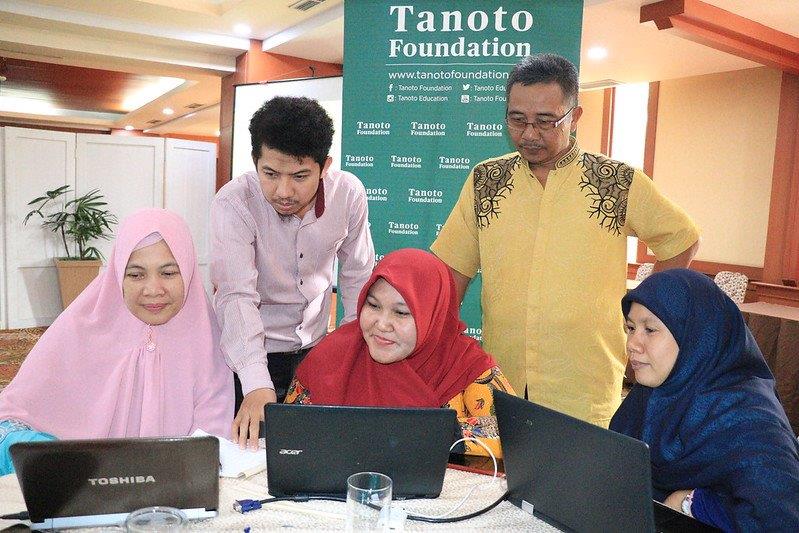
Collaborations To Support Nationwide Efforts
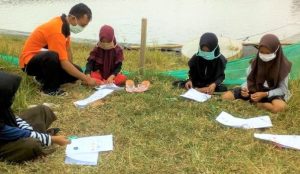
The discussion also touched on the importance of public-private collaboration to achieve impact at scale. In basic education, the Tanoto Foundation seeks to implement the best practices in pre-service training at scale. It is working with the Indonesian government to do so and will be assisting with nationwide implementation in a self-funded effort.
To tackle stunting, Ms Tanoto stated it was important to invest in the first 1,000 days of life – from conception to 2 years of age. Tanoto Foundation is working with UNICEF to reach 24 million “1,000-day households” across Indonesia – an endeavour Ms Tanoto said would require a sophisticated nationwide coordination effort.
Indonesia is among the five countries in the world with the highest number of stunting cases. While the country reduced its prevalence of stunting from 37.2 percent in 2013 to 27.7 percent in 2019, more than one in four children are stunted and unable to realise their full potential.
“The government has the most resources to tackle the issue (of improving governance, accountability and scaling up implementation). For stunting, the Indonesian government pledged to invest 15 billion dollars over four years for over 500 districts. No foundation is able to match that. Having worked with the government, we learned there are many things on which we are aligned,” said Ms Tanoto during the panel discussion.
There are three key points to note when working with the government, Ms Tanoto said: The first, hard evidence, robust monitoring and evaluation; second, soft influence, which is achieved through the implementation of programmes in early-adopter district governments and earning quick wins that are replicable for other districts; and third, lobbying and legislation, in which positive changes are institutionalised and sustained through fruitful partnerships.
However, hurdles remain. Only one in three children in Indonesia have access to computers. This is why as part of the Tanoto Foundation’s drive to help develop key strategies in elevating Indonesia’s global education ranking, the Foundation is working very closely with stakeholders such as the ministry, district governments, school administrators and teachers to speed up programmes such as adoption of technologies for learning.
“The pandemic has made a challenging situation more difficult,” Ms Tanoto concluded. “It is estimated that 1.5 to 8 million people will fall below the poverty line as a result of the pandemic, reversing a decade of progress. In addition to focusing on the shorter term consequences, we need to look at the longer-term impact. The time to act is now – we can’t wait. We want to encourage philanthropists to continue what they’re doing today, but to be ready to support disadvantaged children and communities who will also need our support far into the future.”
To view the webcast, please go to this link: https://privatebank.jpmorgan.com/gl/en/insights/giving/supporting-children-and-adolescents-during-a-global-pandemic-with-unicef
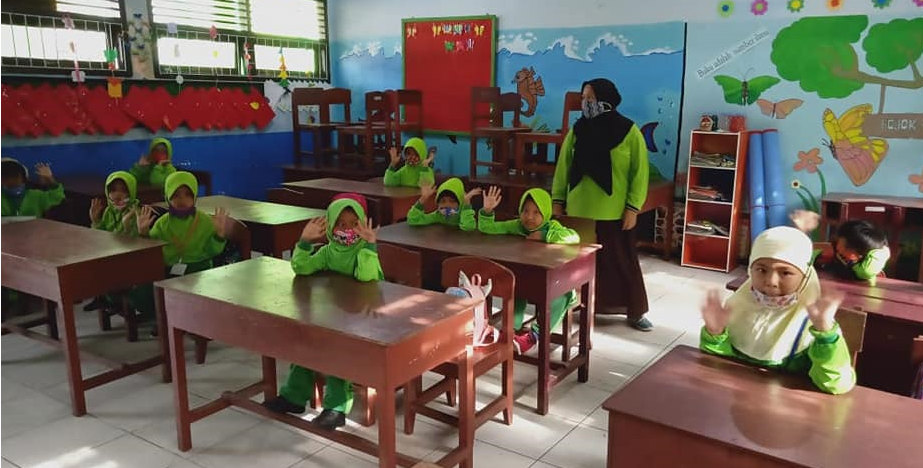
Learning in the safety of the classroom

Leave a Reply